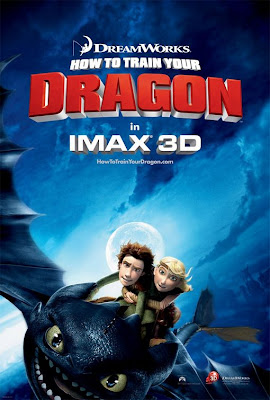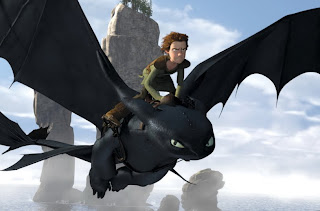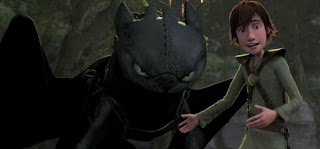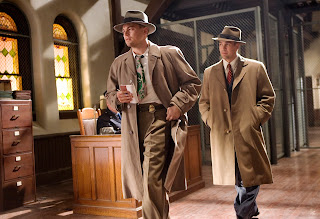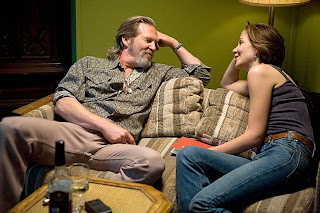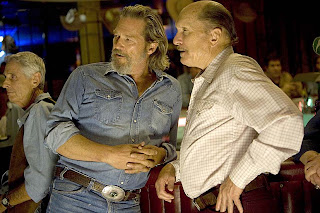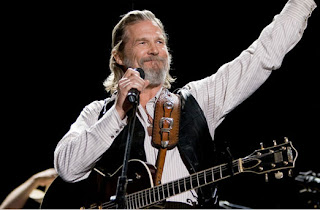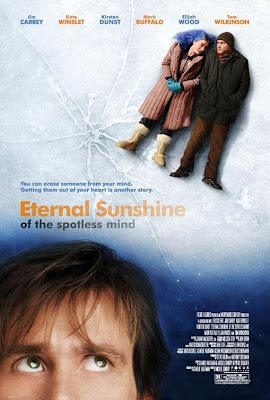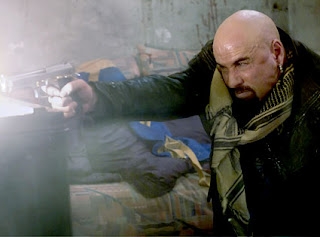Thursday, February 25, 2010
How To Train Your Dragon
Friday, February 19, 2010
L.A. Streetfighters
It's your old boy Alan Trehern here with another review of a good movie. And by "good movie", I mean "pretty bad". And by "pretty bad", I mean "pretty bad ass". L.A. Streetfighters was exactly what I thought it would be, for numerous reasons. And as usual, I'm going to tell you those reasons, whether you like it or not. So let's begin!
L.A. Streetfighters (1985)
Starring and
Produced by Jun Chong
Directed by (as Richard Park)
 STORY
STORY
The plot of this film follows a high-school group of kids who must band together and work as bodyguards to survive the dangerous streets of inner-city Los Angeles. Young (Chong) and Tony (Rhee), become tight friends within the first thirty seconds when the bully and self-appointed ruler of the high school, Chan (), starts trouble. The movie continues from this awkward cold-opening and manages to throw in every stereotype and cliché in the book.
Young and his crew begin getting work as protection at clubs, parties and Mexican fiestas, all the while running the night away on the dark and dingy streets. The best aspect of this movie is that there are literal "street fights" in almost every scene. Whether the guys piss off the Mexican gangs, or Chan's gang or the coke dealers, the movie is over the top action through and through, and for that, I give it 25 Branzys.
However, the movie also shines in the drama department, depicting a troubling life for these young ruffians. Young and his mother have a delicate relationship, and while he strives to improve their mother-son demeanor, she would rather have strange men plow drinks into her in a smoky club. Tony, who has a well-structured family life, spends more time with Young, learns more about his past and the two become like brothers; the kinship portrayed in the movie between Young and Tony, as well as within the Young group, is pretty believable and doesn't seem forced like most movies I see.
For the most part, though, the overall tale has alot of loose ends. Numerous sub-plots were attempted but never resolved, so you're left with six or seven unfinished stories. The movie doesn't actually have a recurring storyline until the very end when they steal the coke dealers' money and the coke dealers come after them; it was the first instance during the film that a plot took more than two scenes to complete.
DIALOGUE
The lowest point of the movie? The acting. The entire movie was over-dubbed in post-production, even though the damn thing was clearly filmed in English. Not only that, but it seemed like every single sentence of dialogue was recorded by the actors separately with no context to the scene, causing each scene to lack the fluidity and substance you expect from any other movie. I mean, seriously, who watched the final cut of this and said, "Well, there's nothing more we can do to it. Let's ship it out." This movie could have met the ranks of A Better Tomorrow or any other "low-quality but good" martial arts movie, but the producers just didn't give a rat's ass. **grumble**
Most of the time, everyone speaks at the same time, but the actors' mouths aren't moving, so you really don't know who's saying what. Further, on occasion a character will ask a question, but no one will answer it. It's like the screenwriters just wrote random lines of dialogue with no real structure in mind. It's utter bullsh*t.
You probably still don't believe how bad the dialogue is. Well, let me give you another example. At one point in the movie, Chan attempts to rough up young Tony and his girlfriend. Each over-dubbed insult is met with an awkward pause, followed by some forced laughter from Chan, like he really burned Tony with that one-liner. The only thing that soothed my temper was the knowledge that the inevitable street fight that would break out within seven seconds. Ahhhh...
CHOREOGRAPHY
As I said before, the fight scenes were pretty good considering the dialogue is pure elephant diarrhea. The fights had what the other scenes lacked: fluidity, quickness, substance, structure. I mean they were no
MUSIC
I love 80s music; I really, really do. And this movie delivered. The trashy streets of L.A. mixed with the synthesized/urban feel of the instrumentals hearkened back memories of Robocop, The Terminator and any other 1980s urban films. For some reason these types of movies make me feel good, and it's something I can't explain, but when I stumble across a movie that fits the criteria, I get so damn excited. Call me a freak, see if I care, but I feel like music can make a movie 50-60 percent better, and L.A. Streetfighters is a perfect example of this.
FINAL THOUGHTS
Now, I have accepted the fact that my taste in movies is far from anything socially acceptable or in any way thoughtful or intellectual. I get persecuted time and time again for the sh*t that I watch and declare as "remarkable". But believe me, if you enjoy a good "bad movie" every once an a while, this film probably isn't for you.
Is it an artistic film? No. Is the story worthwhile? Not by a long shot. Does the dialogue speak to a generation? No, it's god-awful.
This movie is an action-packed Korean martial arts film with themes of friendship, love, family and honor buried somewhere deep among the travesty that these guys call a script. It's a genuine movie made with hardly any budget, and if you watch movies like I do, you'll get a kick out of how bad but terrific it is. Any martial arts fan (Ben included) should check it out, and any pretentious, arty cenophile (Ben not included) should stay far away, lest they defecate all over this film's redeeming qualities with their pompous, analytical poppycock.
COMING SOON: Trehern reviews and the Robocop Trilogy.
UPDATE: Miami Connection is regrettably no where to be found. If you have a copy of it, let me know. Until then, witness this sweet 1980s music video from the movie. Until I find a copy, that's all I got.
Thursday, February 18, 2010
Shutter Island
Hot Tub Time Machine
 by Guest Contributor Joe Leininger
by Guest Contributor Joe LeiningerStarring: John Cusack, Craig Robinson, Rob Corddry, and Clark Duke
Director: Steve Pink
Genre: Raunchy comedy
U.S. Release: March 26th, 2010
I can't say that I've ever been a huge John Cusack fan, but when I heard about this movie I almost had a beneurysm. Alright, so I wasn't excited to that extent, but I do love most everything Craig Robinson (Darryl from The Office, Pineapple Express) touches and his performance in this flick did not stray from the path.
The movie starts out with longtime buddies Adam, Nick, and Lou deciding to escape their everyday problems and take a bender at a local ski resort. Adam (Cusack) also takes it upon himself to bring along his 23-year old nephew Jacob, who sits around the house all day and plays Second Life.
After some heavy boozing the foursome gets zapped back to 1986 and must find the clues to get back to present day, no matter the cost. At this juncture of the film it's not the how or why this happened but rather the absorption of the adventure.

I enjoyed this movie because it was cut from the same cloth as The Hangover and Back to the Future. The gross-out gags were tempered nicely with the one-liners and situational humor. At one point Nick (Robinson) realizes the absurd situation his dumbass friends got him in and looks straight at the camera, channeling some misplaced 'brother' rage seen only in Sam Jackson's character in Snakes on a Plane.
Even though at times it was hard to believe Nick's character would have been such good friends with the other characters most everyone was cast well. Crispin Glover's bellhop character was entertaining but I had a real problem with Chevy Chase as the repairman. Chase was drab, inconsequential and at times frustrating to watch. Clark Duke (who played Jacob) held his own with the others and it appears he can be a more well-rounded version of Jonah Hill.
The women of the movie weren't anything special, but with the way this film plowed its way into the 'guy movie' bin it wasn't much of a surprise or disappointment. Collette Wolfe was very easy on the eyes as Adam's mega-party-whore sister and I wouldn't be shocked to start seeing her in more movies.

This was by no means a must see in theatres but I would strongly suggest it to any John Cusack fan or comedy junkie. It wasn't as good as The Hangover but it gives that same feeling of careless adventure and debauchery. For only his second film as director, executed a comedic tale in which the majority of the gags will have the audience in stitches.
Friday, February 12, 2010
Crazy Heart
Tuesday, February 9, 2010
Eternal Sunshine of the Spotless Mind
Thursday, February 4, 2010
From Paris With Love
For films like these, there seems to be an unspoken contract between director and audience. The director provides spectacular action amid a loosely-conceived plot, and the audience forgives the more practical elements of the story after they are rewarded with the aforementioned action sequences. The problem is, Pierre Morel didn't live up to his end of the bargain. Don't get me wrong, he's done it before - I wish this film was more like Morel's own District B-13 - but this time, the action is lackluster and predictable. In one scene lifted straight out of Wanted, Charlie Wax runs in slow motion through a dummy factory, blindly shooting guns from both extended arms. I think one of the few rules of an action film is "don't let the audience get bored." I guess Morel didn't get the memo. Sure, the occasional car blows up or person gets shot, but these things don't matter when we don't care about the characters.

I feel like I'm beating a dead horse here, but the dialogue is beyond terrible in this movie. Cliched one-liners can be fun depending on context, but Travolta's foul-mouthed special agent reminded me more of someone out of Crank 2: High Voltage - he seemed to say certain things solely to offend people. Aside from unforgivable rom-com lines between Rhys Meyers and his fiance, there is a forehead-slapping callback to Travolta's famous "royale with cheese" speech from Pulp Fiction. Since I feel the need to say something positive about this movie, there is one particular line that I was a fan of: after Wax has killed a slew of Asian drug dealers, Reese asks "how many more of them do you think there are?" Wax comically responds, "According to the last census? About a billion."

Sadly, that cheap joke was the peak of enjoyment for this film. I sincerely hope Travolta learns a lesson from this and returns to making decent films again - I don't think he's beyond redemption, and I truly hope he can make yet another comeback after his recent downfall. (For more on that, check out this solid piece by Jen Yamato over at Cinematical.) From Paris with Love was a disaster from the title onward. If you've seen the trailer, you've already experienced a better film in your head than the one we're actually given. I'll be interested to see if Morel's upcoming adaptation of Dune will feature any dinner scenes, because if Taken and From Paris with Love are any indication, if nothing else we're in for a bloody meal.

